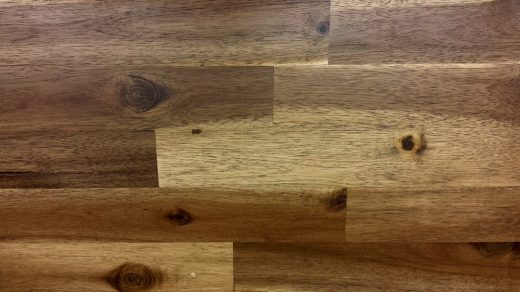How to choose a high-quality laminate, Canada home interior design guide, Canadian property style advice
How to Choose a High-Quality Laminate
16 February 2022
Flooring is not just a question of taste and style: it’s the most functional part of any house and the one that gets used the most on a day-to-day basis. With all the benefits of laminate as your flooring material, laminate quality is extremely important. High-quality laminate from a reputable manufacturer, like Hardwood Planet, may serve for years and look stunning, while poor-quality laminate will wear off and get damaged in no time. Here’s how to choose the best laminate available on the market.
What is Laminate
Laminate flooring is a type of flooring made from a mixture of plastic and foam. This combination serves as the base for the material, which is then laminated to make it waterproof, smooth, and extremely easy to maintain. Laminate flooring is generally lighter than hardwood or carpet, so it’s highly resistant to motion and wear-and-tear damages.
Why Laminate is a Great Flooring Option
In short, it’s cost-effective, stylish, and easy to install. It has a low environmental impact due to its energy efficiency, it’s also stain and mildew resistant. Unlike other floor coverings, laminate does not need to be regularly cleaned and maintained. Additionally, if you want your floors to look beautiful for years to come but can’t afford or don’t have the time for expensive maintenance services, laminate is the perfect solution for you.
How To Check Laminate Quality?
There are a few things you can do in order to check the quality of laminate before you buy it. Of course, checking the manufacturer’s background and reputation is your step zero, but you can do it anytime and it’s an obvious step. Here are more practical ways to ensure that you’re buying a worthy product that will serve as a perfect flooring for your house or your project.
Check for Defects
A floor could be damaged in a number of ways and this can lead to a lower life span. To check for defects such as cracks, pitting, and unevenness, you can use a special laminate flooring leveler.
Make sure that the laminate is clean from dust and debris before you start inspecting it. Good manufacturers, lass Hardwood Planet, care about the package of the laminate and its condition, but if you get laminate in a slightly damaged pack — it doesn’t necessarily mean that it’s bad.
Check the flooring for pitting, bumps, or any other unevenness in the surface that could be a sign of poor quality or damage.
Thickness
Check for the thickness of your laminate, which should be between 5.5mm and 10mm, so that it is durable and offers a long-lasting service to you. A thicker laminate usually significantly improves the durability and longevity of your floor cover.
Touch and Feel
When you’re checking out the laminate, make sure to start with the edges of a plank. This way you will see if there’s any damage or unevenness in the board. You should know that the laminate is of high quality if it feels smooth and flat, without any bumps or grooves in it. A low-quality laminate is usually bubbled or has grooves.
Tile or Vinyl?
The biggest difference between laminate tiles and vinyl laminate is the flooring lifetime. Vinyl tiles tend to lose their color and texture after a few years, while laminate planks have a much longer lifespan. Nowadays there are many types of vinyl laminates you can choose from, but still, they don’t last as long as plain laminates.
Laminate Quality Checklist
Now that you know the areas that should be thoroughly checked, here’s a little helping guide: a step-by-step simple checklist for a laminate quality test.
- Look up the manufacturer;
- Check for defects;
- Inspect the surface condition – flatness, thickness, smoothness, and so on;
- Check if there are any defects;
- Check for slight bubbles or grooves;
- Look up the warranty.
- Inspect the edges of a plank.
These 7 steps will ensure that you’re not wasting your money or don’t get tricked by the salesperson or the manufacturer.
Why Laminate Quality Even Matters That Much?
We’re sure you’re not walking on your walls, rarely touch the corners of your hallways, and barely interact with your ceiling at all, but you always — ALWAYS — use your floor. Poor quality laminate will not stand day-to-day use. It will crack, it will wear off, it will break, bubble up, bend, and make even the nicest project look cheap. So, when you’re looking to buy laminate, look for the best quality. After all, you’re investing in something that will be used by all members of your family and yourself more often than your fridge, your car, or TV set.
Comments on this How to Choose a High-Quality Laminates article are welcome.
Windows & Blinds
Windows Posts
6 of the Hottest Window Blind Trends
How to choose best casement windows for your house
Where should you check out sash windows
Building Posts
Residential Architecture
Comments / photos for the How to Choose a High-Quality Laminate page welcome







